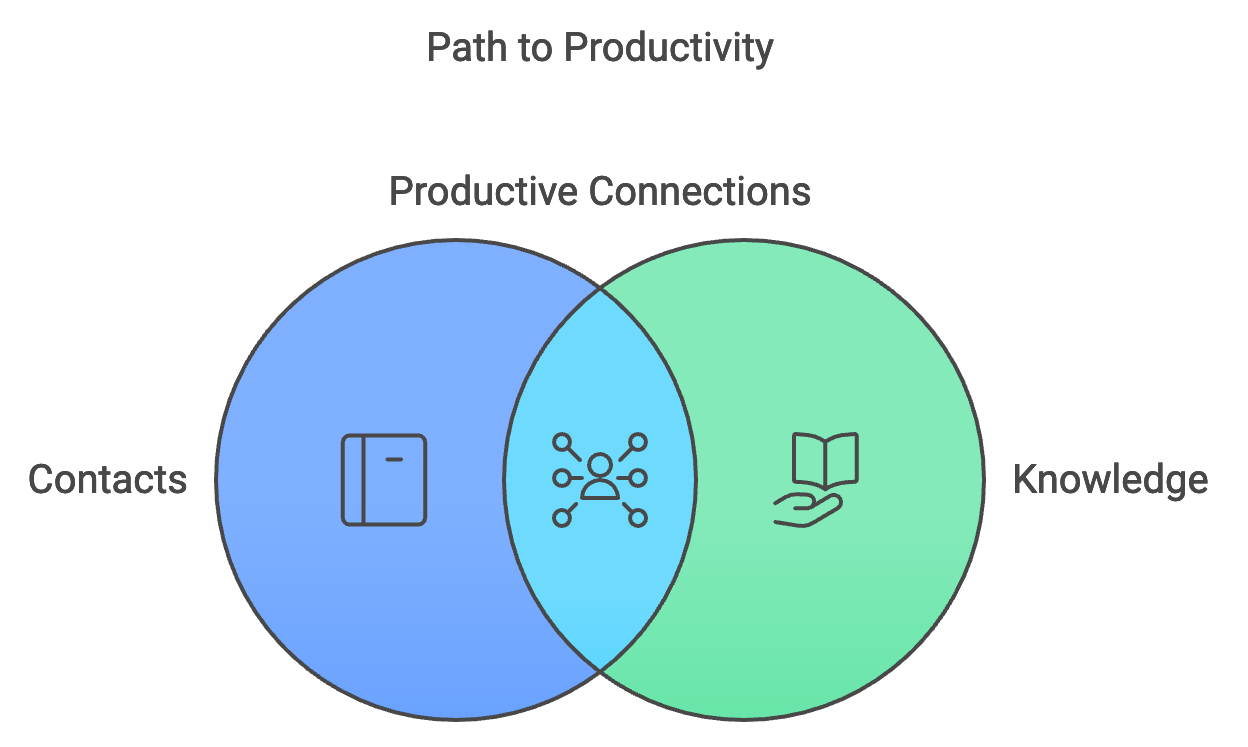- The biggest pain during castdevs was precisely about contacts. The thing is that throughout our lives we meet many useful people, specialists, experts, teachers, mentors, etc. who are very knowledgeable in a particular topic. But we live, do different jobs and projects, and as a result, very good contacts were often lost. I tried to write them down somehow in phone contacts, tagged them, in social networks, etc. But then, when opening contacts, I did not understand who this person was and what he did, I forgot the person.
- I think that marking contacts and connecting people through knowledge and the social graph is productive. The next time you search for something you need on a topic, then through knowledge and the social graph you can quickly find the expert you need.
The problem of the phone book and social networks
- When I tried to write contacts in the phone book, I added notes like "manager", "teacher", "programming friend". But after a few years, I would open a contact and not be able to remember how exactly this person helped me or what knowledge they shared. And if the person changed professions or developed a new area of expertise, my notes became useless.
- Social networks did not solve the problem either. Yes, I could see a person's profile, but there was no overall picture and context. It was also not clear how exactly this person helped me or what knowledge they shared.
How to save valuable contacts through knowledge: contact tagging and the social graph
The idea of linking contacts with their knowledge seems promising. Instead of writing down "Bob Smith - programmer" in your phone, you add him through notes where he shared his ideas or helped you with a project. Now, every time you search for information, an expert related to this topic will be found automatically.
Here's how it works:
1. Tagging notes, and ultimately contacts. Instead of a dry "colleague", you add tags: "Python", "startups", "UI/UX". This helps you quickly find people on a specific topic.
2. Connect through knowledge. When you write notes on a topic and add a person to it, this contact is automatically connected to your social graph.
3. Productive search for experts. The next time you need advice on launching a startup, you just start taking a note and the algorithm will show you relevant people who shared knowledge or experience with you by tags.
Example: creating a contact base through knowledge
You are working on a data analysis project. You create a note "Data classification", tag it as "Data Science", "Python", "ML". In this note, you add a colleague who told you about model training in the past. When you need help again in a year, you will quickly find this expert through your notes and the recommendation system and remember how they can help.
Advantages of the approach
- Structure. Contacts no longer get lost in chaos. All contacts are connected through knowledge, you see the big picture.
- Living knowledge base. Even if a person changes specialization, communication through notes (knowledge) allows you to stay in context.
- Less flooding. Unlike instant messengers, notes save only valuable information.
Why is this important?
- Contacts without context are just numbers. Contacts connected with knowledge are a promising tool for productive work. This approach helps not only to preserve connections, but also to use them effectively, without wasting time searching for the right person at the moment when they are especially needed.
- The next time you think about how to record a new contact, remember: tagging and connection through knowledge are the path to productivity.
